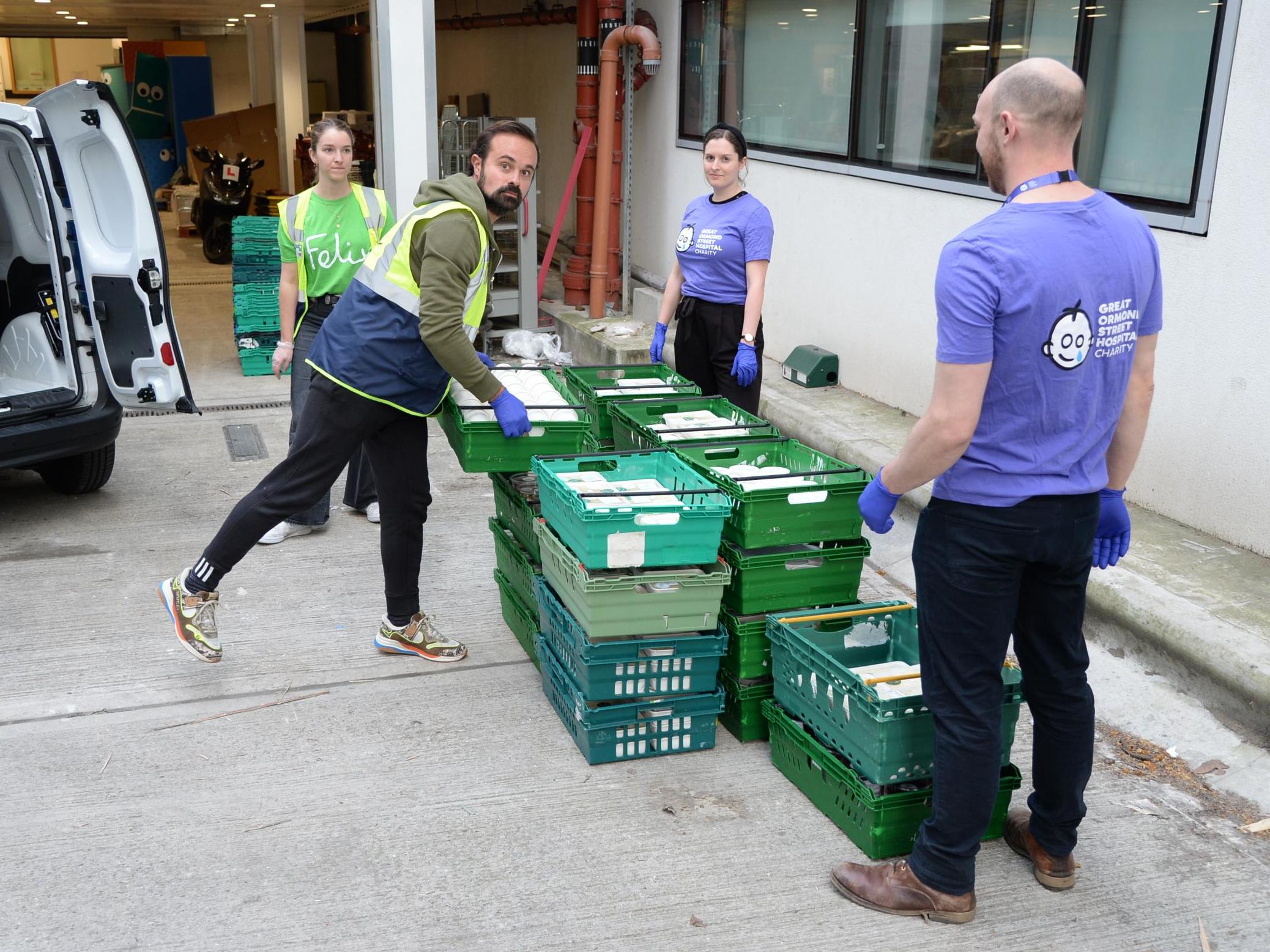‘Give families cash’: Food bank chief warns charities will struggle to cope with ‘profound’ demand
Help The Hungry: ‘The most straightforward and dignified response is to provide people with the cash,’ says head of Trussell Trust food bank network
Your support helps us to tell the story
From reproductive rights to climate change to Big Tech, The Independent is on the ground when the story is developing. Whether it's investigating the financials of Elon Musk's pro-Trump PAC or producing our latest documentary, 'The A Word', which shines a light on the American women fighting for reproductive rights, we know how important it is to parse out the facts from the messaging.
At such a critical moment in US history, we need reporters on the ground. Your donation allows us to keep sending journalists to speak to both sides of the story.
The Independent is trusted by Americans across the entire political spectrum. And unlike many other quality news outlets, we choose not to lock Americans out of our reporting and analysis with paywalls. We believe quality journalism should be available to everyone, paid for by those who can afford it.
Your support makes all the difference.Charities cannot cope “indefinitely” with the huge spike in demand for help caused by the coronavirus pandemic, the head of Britain’s largest network of food banks has warned.
Emma Revie, chief executive of the Trussell Trust, said millions of families across the UK had suffered from a sudden “income shock” since the lockdown began and needed more financial support from government to ensure they did not go hungry.
The food bank chief told MPs on the Environment, Food and Rural Affairs Select Committee that the Trussell Trust and a coalition of anti-poverty charities had written to the chancellor demanding an emergency income support scheme.
She said the pandemic has had an “instantaneous and profound” impact on food poverty. There was an 81 per cent increase in emergency food parcels given out during the last two weeks of March compared to the same period in 2019.
Warning that the enormous level of need was likely to continue, she said: “If would be false of me to say we can continue to meet indefinitely an unspecified level of increased demand.”
The Independent’s Help The Hungry campaign is seeking to raise £10m for the food surplus charity The Felix Project so it can provide food for NHS staff, the poor and elderly who are unable to afford supplies or remain stuck at home for health reasons.
The Trussell Trust chief said food aid charities had done “incredible work” since the beginning of the outbreak, and said more than 50 per cent of food banks had adapted to the lockdown by doing home deliveries.
However, Ms Revie argued that unless the government strengthened the financial safety net, the UK would continue to see “the kind of destitution that drives people to food banks”.
She added: “The problem is people falling into financial hardship. The answer to financial hardship is not food. We are treating one symptom of an underlying problem … The issue we must be focusing on reducing the flow of people into foodbanks.”
Advocating a “cash-first approach”, Ms Revie said: “If we’re identifying families in financial hardship – the most straightforward and dignified response is to provide them with the cash.”

The coalition of charities – including the Children’s Society and the Joseph Rowntree Foundation – want the government to agree to an income support package that would raise benefits going to families and stop the five-week wait for initial universal credit payments.
Praising the supermarkets for boosting the amount of produce provided to food banks over the past two months, Ms Revie warned the increased supply could not last forever.
“Without the support of the major retailers, the last eight weeks would have been almost impossible for our food banks to meet demand,” she said. “But that is unsustainable and is not necessary in the best interests of those retailers, longer-term, to provide food for free to food banks to distribute.”
Lindsay Boswell, chief executive of FareShare, told MPs at the select committee hearing that his own organisation had been supplying food to an extra 1,200 food banks, hostels, refugee centres and other small groups since the pandemic began.
“There has been a 134 per cent increase in the volume of food flowing through our system,” Mr Boswell said, praising the farmers, wholesalers, supermarkets and restaurants providing surplus produce to the organisation.
The Independent is encouraging readers to help groups that are trying to feed the hungry during the crisis — find out how you can help here. Follow this link to donate to our appeal campaign in London in partnership with the Evening Standard.

Join our commenting forum
Join thought-provoking conversations, follow other Independent readers and see their replies
Comments